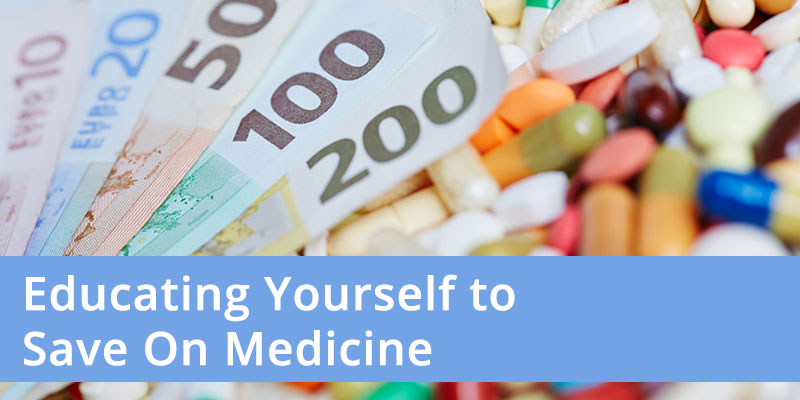Educating Yourself to Save On Medicine
Healthcare today is an incredibly complex field. There are countless providers, from doctors to nurse practitioners. They can see you in an office, clinic, hospital, or even online. And if they find anything that requires treatment, you may see a therapist or be prescribed any of countless prescription drugs.

Just keeping up with what you or a loved one need to do can be overwhelming, and when changes come along, it is even worse. To top it all off, every step of the process can involve crippling expense.
Navigating through all this complexity sounds intimidating, but there are resources available to help you do it. Getting a few tools lined up and learning how to use them will go a long way toward reducing the cost and confusion of health care.
Find Discounts
We often assume that medication is a unique good that we can’t shop around for. We just figure that we might as well get it at the same drugstore we’ve used for years. But that can end up being a costly mistake.
There are more ways now than ever before to cut your costs on your drugs. For one thing, check the formulary for your health insurance plan the next time open enrollment comes around. If you are on medications that aren’t covered, review the list with the prescriber to see if you can get the same results from one that is covered.
In the short term, it does pay to shop around. Lowest Med can quickly sort through your list of medications and find you the best prices in your area. They can provide other information that can help your savings as well, which brings us to our next point.
Understand Your Medications
While many people take only one medication, others have a number of interacting conditions that necessitate multiple pharmaceuticals. These various drugs are often prescribed by various doctors, and there can be communication lapses that keep the patient from getting optimum care.
Each drug you receive is for a certain purpose, but it may treat other conditions as well. It has various interaction risks and side effects, all of which you need to understand. Getting the complete picture of a given medication is essential to help you know whether you should take it, what you shouldn’t take it with, and where you can buy it or a generic.
Take Action for Your Health
The best way to avoid the expense and trouble of medical care is to improve your health without it. Many conditions for which we require medication can be reversed or managed, or at least held at bay to avoid escalation.
High blood pressure is an easy example. We know that an improved diet, weight loss, and reduced stress can help to reverse this condition, eliminating the need for medication. The same is true of high cholesterol in many patients.
When you visit a caregiver, don’t just accept these diagnoses as a given. Talk at length with the doctor and ask if there are things you can do to work your way off the medication. Then find someone who can help guide you through that process, whether it’s a personal trainer, a dietitian, or just a health “buddy” that can share accountability with you.
When our health is at stake, we entrust the care of our bodies and minds to professionals, as we should. But their growing patient load and relatively limited direct contact with us make it difficult for them to provide all the information that we need, and in the case of things like drug costs, they may not even have the answers anyway.
The best way to safeguard your health is to take the input of your practitioners and apply it, then take the initiative to learn more about your conditions, the prescribed treatment, and the other options available to you to reduce the cost of your treatment, to avoid drug interactions, and to take control of your health to reduce the need for medications.



